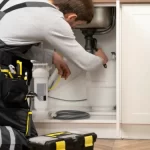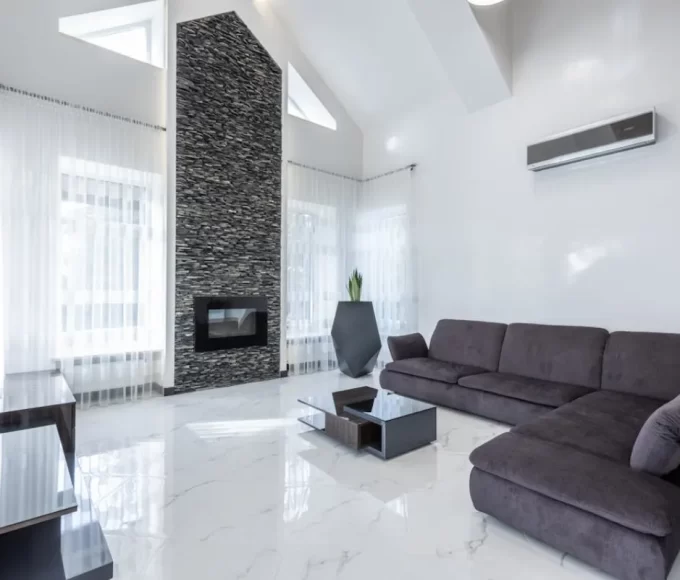If there’s one thing that tenant’s see as a nightmare, it is an upcoming rental inspection notification.
And this is for obvious reasons since the thought of someone scrutinizing every nook and cranny of your personal space might make you feel uneasy.
Not to mention, if potential problems are found during the inspection, your landlord can also hold you liable for the damages.
But what if I told you that you can prepare yourself for one such inspection well in advance and rest easy both during and after the inspections?
In fact, all you need is a rental property inspection checklist to make sure everything is up to order. .
Moreover, with a little understanding of what to expect, rental inspections can be a smooth experience.
Read on, as I’ve discussed everything about rental property assessments in simple layman terms.
What is a rental property inspection?
As the name suggests, a rental property inspection is simply an in-depth assessment of the property you’ve rented.
Here, either property managers or landlords call in specialized building inspectors to assess the existing condition of the property. They do so to ensure that you’re following the terms of your lease agreement.
You see, rental inspections are a routine part of the real estate world where building inspectors assess the property and prepare a commercial property condition report. And this benefits both you and your landlord
As such, a rental inspection will check for everything from maintenance issues to overall building standards.
Now, a rental inspection usually involves building inspectors conducting a walk-through visual inspection of the property. And during this exercise, they’ll take notes, and document the condition of every area, appliance, fixture, and surface.
All in all, inspector will be on the lookout for the following:
- Damage to walls and floors
- Damage to electrical appliances or fixtures
- Improper or unauthorized alterations and additions
- Cleanliness and sanitation issues
- Plumbing, electrical, and HVAC
- Potential Safety hazards
- Lease term violations
Note: Even though a 40 year recertification florida inspection checklist will include similar items, I suggest you prepare for it separately.
Why is a rental inspection essential?
Now that you know what a rental assessment involves, you might well be curious why it is so important.
While an inspection might seem to be something that suits the landlord’s interests, it’s actually beneficial for you as a tenant.
How?
Well, here are some of the reasons why inspections matter to tenants as well:
#1. Safety and wellbeing
A rental inspection allows property inspectors to identify any potential safety issues or hazards that need to be addressed on priority.
For instance, there could be faulty wiring, leakages, or structural problems. And whether or not you’re responsible for these problems, addressing them is key to ensuring that you and other occupants are safe.
#2. Timely preventative maintenance
There could be minor problems like dripping faucets or squeaky doors lurking under the surface.
These problems are flagged during inspections, thus ensuring proactive repairs before they become major headaches down the line.
#3. Higher quality of living
As a tenant, you expect to maintain a certain standard of living. So, when properties are assessed and maintained regularly, it contributes to a higher quality of living and improved experience.
After all, you don’t want to live with broken appliances or crumbling drywall, do you?
#4. Protects the property in the long run
If you’re occupying the property for extended years, you might also be responsible for maintaining it. And to that end, regular rental inspections will ensure you’re aware of the existing condition and maintenance requirements.
#5. Provides clarity when moving out
A detailed move-in and move-out rental inspection will document the condition of the property at the start and end of your tenancy. This, in turn, will provide a reasonable way to assess your liabilities for any damage, avoiding disputes with the landlord over security deposits.
What are the different types of rental property inspections?
When it comes to a rental building inspection, there are various assessment types, depending on the time of occupancy and purpose of inspection.
Here are the different inspection types:
- Move-in inspection: It is conducted just before you move into a new rental. Here, the assessment documents the unit’s condition so there’s clarity before you move in.
- Routine inspections: These are carried out either annually or twice every year. It allows landlords to assess the property’s condition during your lease term.
- Move-out inspection: This is scheduled after you’ve vacated the property and is used to compare the building’s condition to the original move-in inspection report. making note of any changes or damage.
Final words
As you’d have figured out by now, a rental property inspection is just a part of the normal occupancy cycle. Also, it helps maintain the property, protect both tenant and owner, and helps prevent potential disputes.
So take my advice and look at it as a collective effort for your overall well being rather than a liability.
At the end of the day, both you and your landlord want the property to be a safe, comfortable, and well-maintained place.














